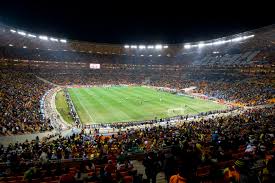Introduction
DHL Stadium, located in Cape Town, South Africa, holds a pivotal role in the country’s sports and entertainment landscape. Formerly known as Green Point Stadium, it was completed in 2009 and has since hosted numerous significant events, including matches during the FIFA World Cup. Its modern architecture and expansive seating capacity make it a preferred venue for both local and international events. As the stadium prepares for an array of upcoming events, it continues to be an important symbol of pride and unity for South Africans.
Facilities and Features
The stadium boasts a seating capacity of approximately 55,000, making it one of the largest in the country. In addition to its primary function as a sports venue, it features a range of facilities that cater to concerts and community events. The venue’s design allows for flexible use, enabling it to easily transition from a football pitch to a concert setting. Furthermore, DHL Stadium is equipped with state-of-the-art amenities, including hospitality suites, numerous concessions, and ample parking, promoting a comfortable experience for attendees.
Recent and Upcoming Events
In recent months, DHL Stadium has hosted several high-profile events, including rugby matches involving the Springboks and popular international music artists. Looking forward, the stadium is slated to host the upcoming World Rugby Sevens Series, drawing top teams from around the globe. Additionally, local festivals and events celebrating South African culture are also on the horizon. This variety of programming highlights the venue’s versatility and its integral role in the community.
Impact on Local Economy
The presence of DHL Stadium has a significant impact on the local economy. Events held at the stadium create business opportunities for local vendors, increase tourism, and provide jobs in diverse sectors, from hospitality to logistics. Local businesses often see a boost during events, as visitors flock to restaurants and shops in the surrounding areas. Such economic activity is crucial, particularly as the region continues to recover from the economic impacts of the COVID-19 pandemic.
Conclusion
As DHL Stadium prepares for an exciting line-up of events, its importance to South Africa’s sports culture and local economy cannot be overstated. The stadium not only brings communities together through sports and entertainment but also generates crucial economic benefits. As upcoming events approach, the local enthusiasm remains high, reaffirming the stadium’s status as a key player in the nation’s socio-economic landscape.


